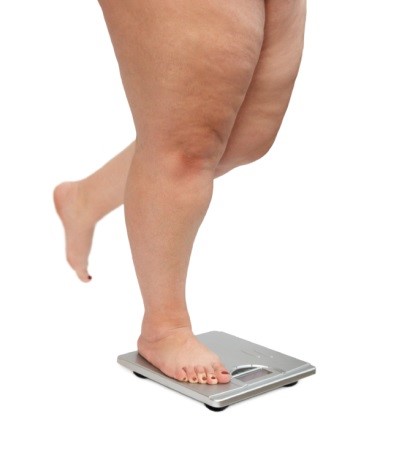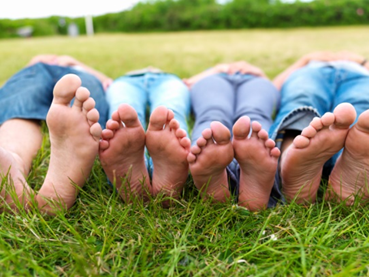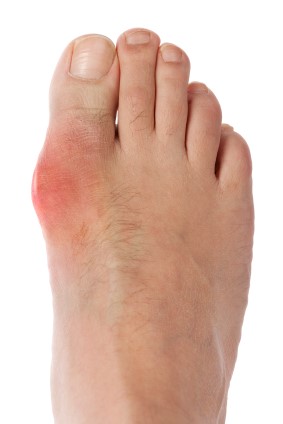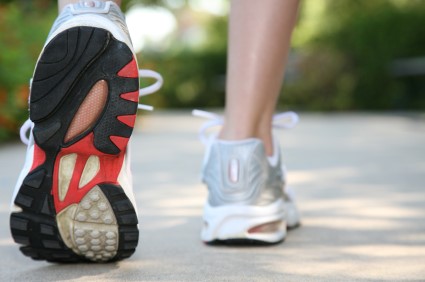Items filtered by date: June 2016
Growing Link between Obesity and Diabetes
 “Diabesity” is a term used to describe the link between being overweight and diabetes, especially in America. Obesity “refers[s] to body weight that’s greater than what is considered healthy for a certain height,” which can potentially lead to many different problems such as diabetes, and “it is estimated that 63 percent of Americans are overweight or obese.” Treating and preventing diabetes involves incorporating moderate exercise into your daily routine and cutting down on daily caloric intake.
“Diabesity” is a term used to describe the link between being overweight and diabetes, especially in America. Obesity “refers[s] to body weight that’s greater than what is considered healthy for a certain height,” which can potentially lead to many different problems such as diabetes, and “it is estimated that 63 percent of Americans are overweight or obese.” Treating and preventing diabetes involves incorporating moderate exercise into your daily routine and cutting down on daily caloric intake.
Any additional problems in the feet of those with obesity can be detrimental to foot health. If you have any concerns, contact Dr. Joshua David Scoll of Pennsylvania. Our doctor will treat your foot and ankle needs.
Obesity and your Feet
Since your feet are what support your entire weight when standing, any additional weight can result in pain and swelling. Being overweight is one of the main contributors to foot complications.
Problems & Complications
Extra Weight – Even putting on just a few extra pounds could create serious complications for your feet. As your weight increases, your balance and body will shift, creating new stresses on your feet. This uneven weight distribution can cause pain, even while doing the simplest tasks, such as walking.
Diabetes – People who are overweight are at serious risk of developing type-2 diabetes, which has a drastic impact on the health of your feet. As you get older, your diabetes might worsen, which could lead to loss of feeling in your feet, sores, and bruises. You could also become more prone to various infections.
Solutions
Footwear – Specially made footwear that supports your joints, arches, and ankles, and allows room for good circulation is a great option to mitigate pressure and pain. A podiatrist will help you decide what works best for your specific needs.
Exercise – Exercise will help alleviate the pain and give your feet the strength it needs to support your body. Exercise also increases blood flow to your feet, allowing them to remain healthy and strong.
Most importantly, seek the help of a podiatrist for foot care if something is wrong or doesn’t seem to be working. A podiatrist will help you with any questions or information needed.
If you have any questions, please contact our offices located in Philadelphia and Bensalem, PA. We offer the newest diagnostic and treatment technologies for all your foot care needs.
What Are Plantar Warts?
 Plantar warts develop on the bottom of our feet as round growths on the skin, described as having brown dots. Warts are caused by the papillomavirus and usually go away on their own, typically not requiring any treatment. Avoid picking at the wart to prevent infection. A potential option for treating your wart is by covering it up with tape, as “warts deprived of air and sun exposure sometimes die without the need for topical treatments.”
Plantar warts develop on the bottom of our feet as round growths on the skin, described as having brown dots. Warts are caused by the papillomavirus and usually go away on their own, typically not requiring any treatment. Avoid picking at the wart to prevent infection. A potential option for treating your wart is by covering it up with tape, as “warts deprived of air and sun exposure sometimes die without the need for topical treatments.”
Plantar warts can be very uncomfortable. If you need your feet checked, consult with Dr. Joshua David Scoll of Pennsylvania. Our doctor will assist you with all of your foot and ankle needs.
About Plantar Warts
Plantar warts are the result of HPV, or human papillomavirus, getting into open wounds on the feet. They are mostly found on the heels or balls of the feet.
While plantar warts are generally harmless, those experiencing excessive pain or those suffering from diabetes or a compromised immune system require immediate medical care. Plantar warts are easily diagnosed, usually through scraping off a bit of rough skin or by getting a biopsy.
Symptoms
- Legions on the bottom of your feet, usually rough and grainy
- Hard or thick callused spots
- Wart seeds, which are small clotted blood vessels that look like little black spots
- Pain, discomfort, or tenderness of your feet when walking or standing
Treatment
- Freezing
- Electric tool removal
- Laser Treatment
- Topical Creams (prescription only)
- Over-the-counter medications
To help prevent developing plantar warts, avoid walking barefoot over abrasive surfaces that can cause cuts or wounds for HPV to get into. Avoiding direct contact with other warts, as well as not picking or rubbing existing warts, will help prevent the further spread of plantar warts. However, if you think you have developed plantar warts, speak to your podiatrist. He or she can diagnose the warts on your feet and recommend the appropriate treatment options.
If you have any questions, please contact our offices located in Philadelphia and Bensalem, PA. We offer the newest diagnostic and treatment technologies for all your foot care needs.
Steroids as an Option to Treat Gout
 Steroids are considered one potential option for treating gout, a condition which causes inflammation and pain in our bodies’s joints. Gout occurs when uric acid is deposited into our joints, forming crystal deposits which interrupt tissue function and circulation. Steroids are considered for treating gout that is acute.
Steroids are considered one potential option for treating gout, a condition which causes inflammation and pain in our bodies’s joints. Gout occurs when uric acid is deposited into our joints, forming crystal deposits which interrupt tissue function and circulation. Steroids are considered for treating gout that is acute.
Gout is a foot condition that requires certain treatment and care. If you are seeking treatment, consult with Dr. Joshua David Scoll of Pennsylvania. Our doctor will assist you with all of your foot and ankle needs.
What is Gout?
Gout is a type of arthritis caused by a buildup of uric acid in the bloodstream. It often develops in the foot, especially the big toe area, although it can manifest in other parts of the body as well. Gout can make walking and standing very painful and is especially common in diabetics and the obese.
People typically get gout because of a poor diet. Genetic predisposition is also a factor. The children of parents who have had gout frequently have a chance of developing it themselves.
Gout can easily be identified by redness and inflammation of the big toe and the surrounding areas of the foot. Other symptoms include extreme fatigue, joint pain, and running high fevers. Sometimes corticosteroid drugs can be prescribed to treat gout, but the best way to combat this disease is to get more exercise and eat a better diet.
If you have any questions, please contact our offices located in Philadelphia and Bensalem, PA. We offer the newest diagnostic and treatment technologies for all your foot care needs.
Proper Technique can help reduce Risk of Running Injuries
 As there are about “54 million runners or joggers in the United States,” health and fitness experts recommend “at least 150 minutes of activity a week for people to maintain a healthy lifestyle.” However, for those who run and exercise often, this also means that they are at risk of running injuries. Recently physical therapists and running experts have discovered that athletes can prevent running injuries by adhering to proper running technique, such as reducing impact loading. Video analysis is also used to assess the athlete’s form and gait, which can then help develop a proper training program.
As there are about “54 million runners or joggers in the United States,” health and fitness experts recommend “at least 150 minutes of activity a week for people to maintain a healthy lifestyle.” However, for those who run and exercise often, this also means that they are at risk of running injuries. Recently physical therapists and running experts have discovered that athletes can prevent running injuries by adhering to proper running technique, such as reducing impact loading. Video analysis is also used to assess the athlete’s form and gait, which can then help develop a proper training program.
Runners can still be prone to running injuries even with proper precautions. If you are suffering from a running injury, consult with Dr. Joshua David Scoll of Pennsylvania. Our doctor will assist you with all of your foot and ankle needs.
How to Prevent Running Injuries
Many common running injuries are caused by overuse and overtraining. When the back of the kneecap starts wearing out and starts causing pain in your knee, this is commonly referred to as runner’s knee. Runner’s knee is a decrease in strength in your quadriceps and can occur if you’re not wearing properly fitted or supporting shoes. To prevent runner’s knee, focusing on hip strengthening is a good idea, as well as strengthening your quads to keep the kneecaps aligned.
What Are Some Causes of Running Injuries?
- One cause of a common running injury is called iliotibial band syndrome.
- Plantar fasciitis is also another common injury.
- Stress fractures can occur from overtraining, lack of calcium, or even your running style.
Best Ways to Prevent Running Injuries
- Wear footwear that fits properly and suits your running needs.
- Running shoes are the only protective gear that runners have to safeguard them from injury.
- Make a training schedule. Adding strengthening exercises as well as regular stretching can help keep you strong and limber and can lessen the possibility of injuries.
- Stretching keeps muscles limber, this will help you gain better flexibility.
If you have any questions, please contact our offices located in Philadelphia and Bensalem, PA. We offer the newest diagnostic and treatment technologies for all your foot care needs.
